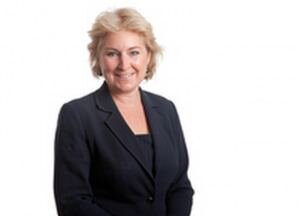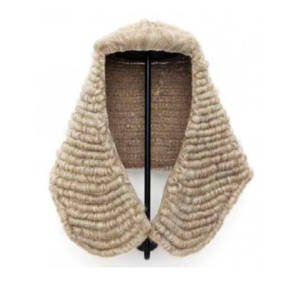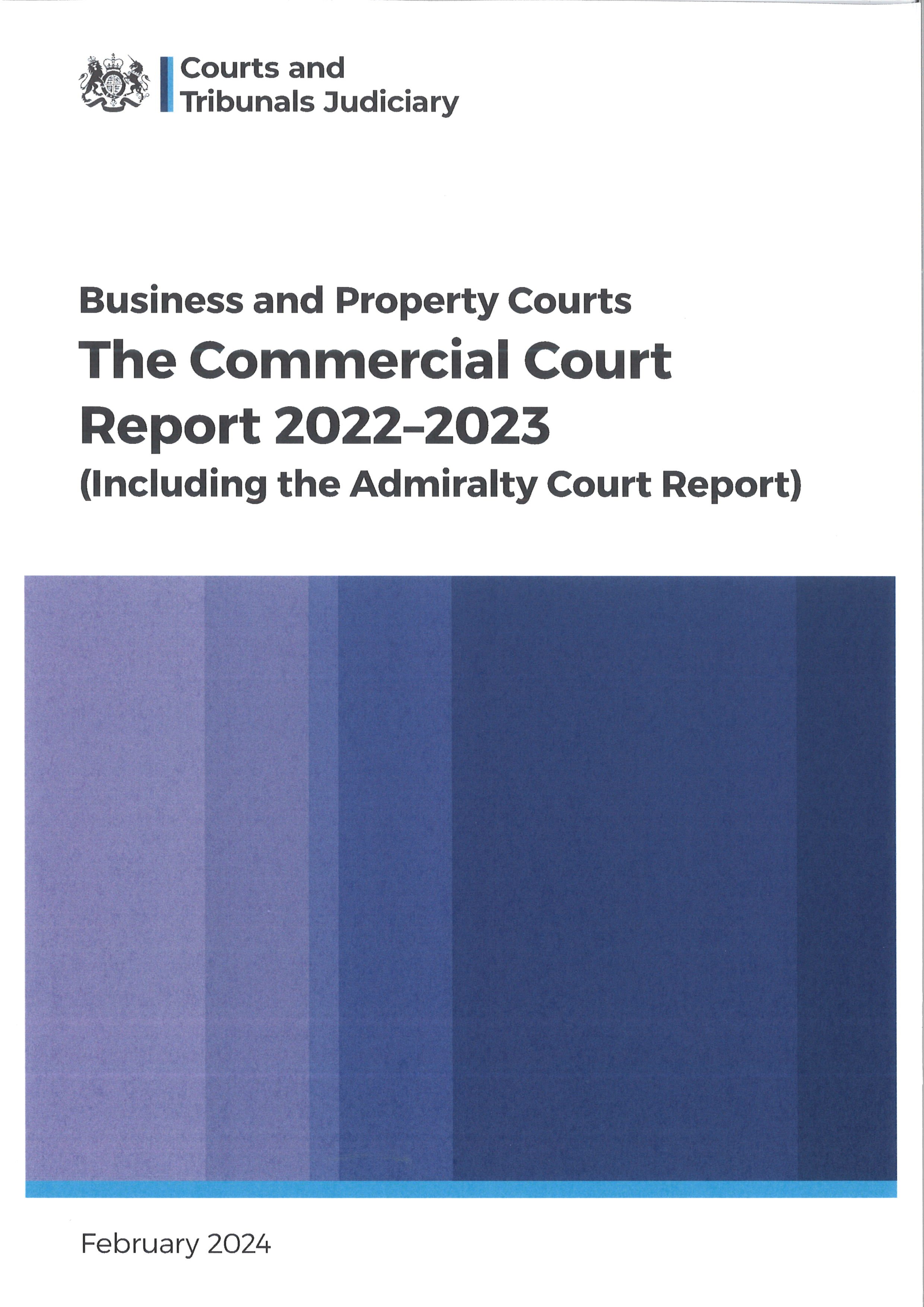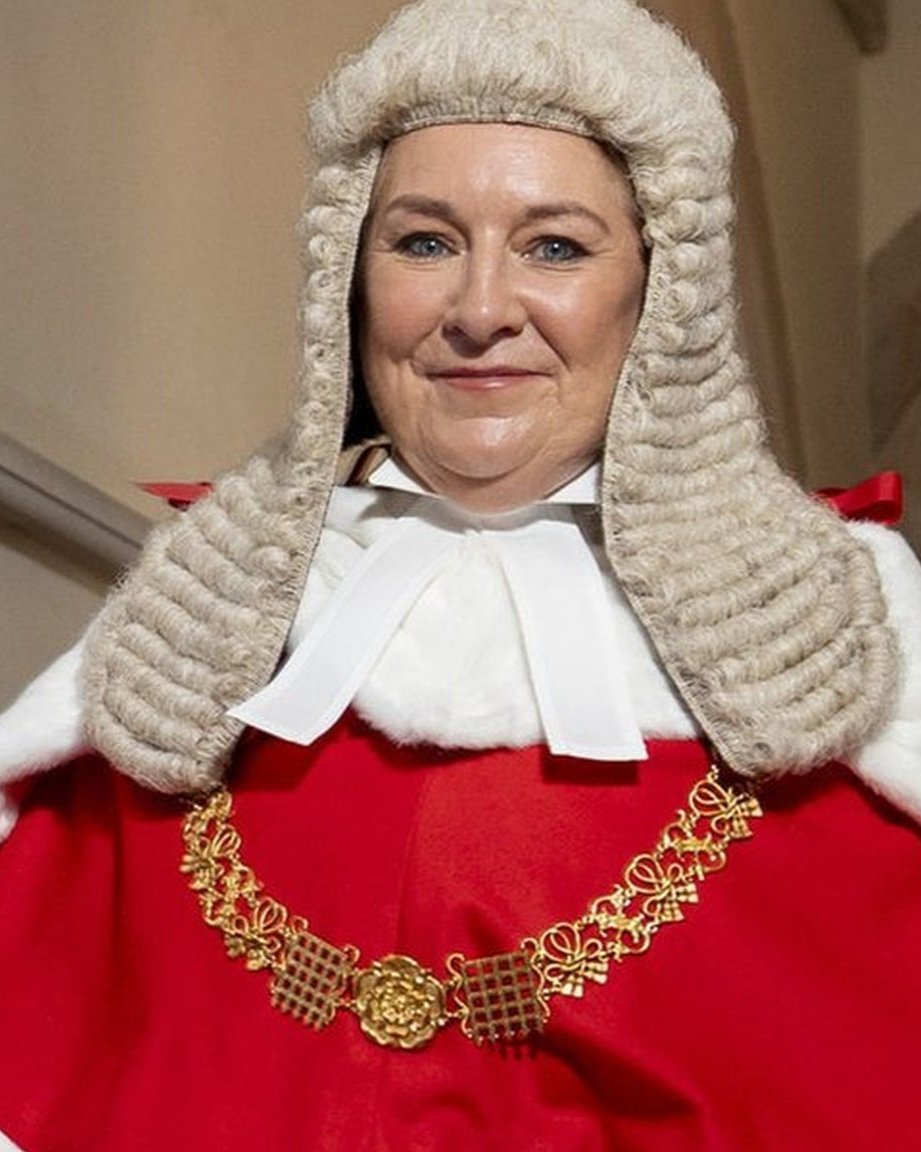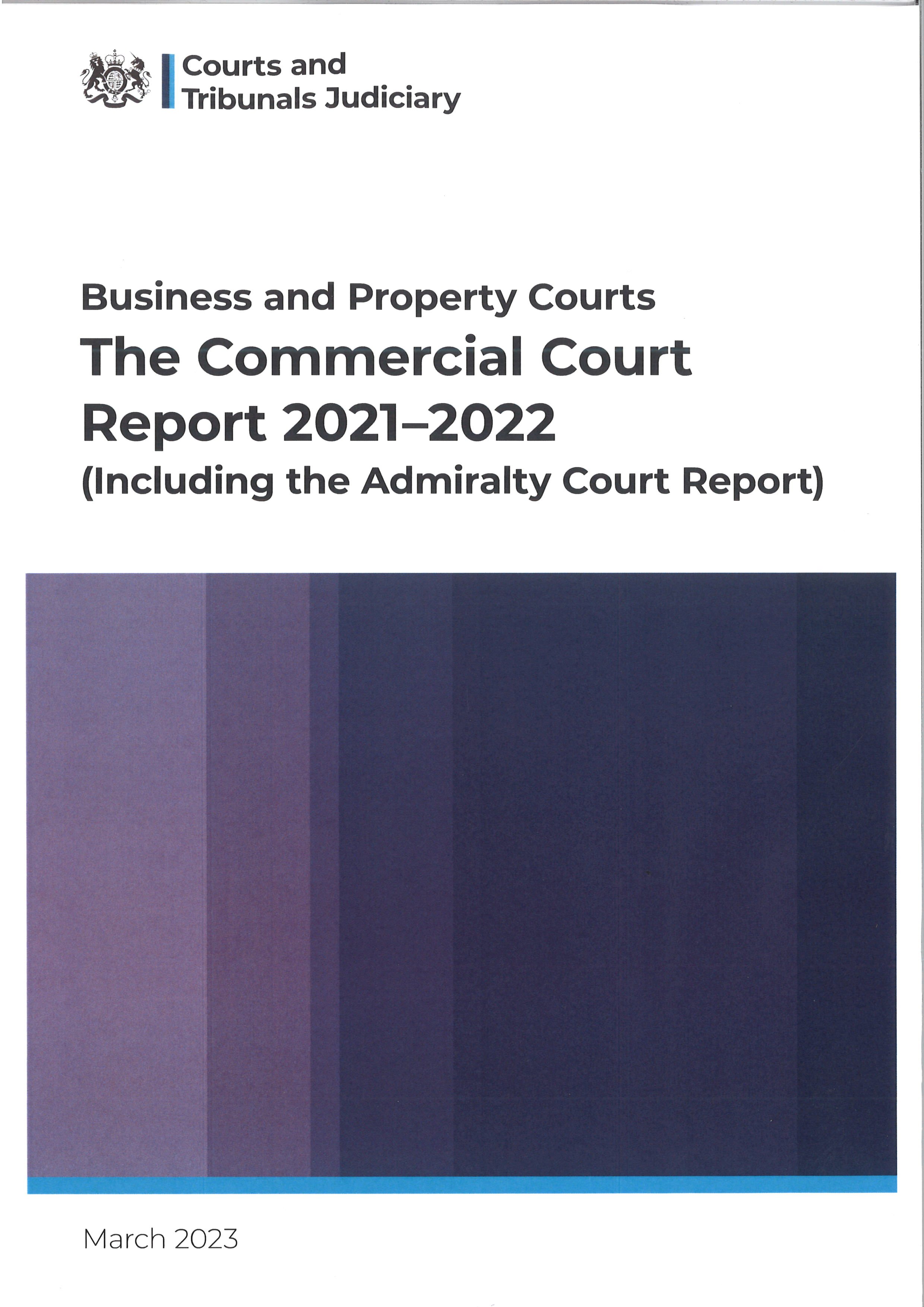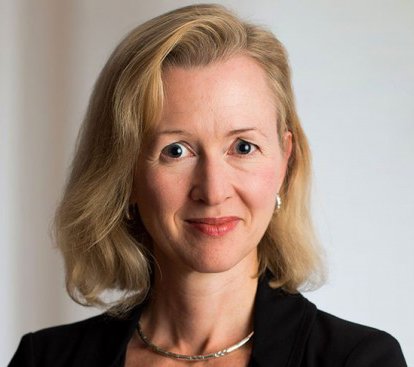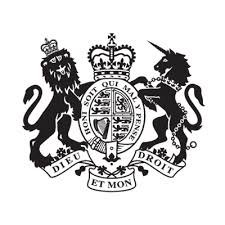Professional Negligence: The Commercial Court Seminar (7th May 2024)
The Lady Chief Justice (and former Commercial Court Judge), Lady Carr, chaired the Commercial Court’s latest academic/judicial/practitioner seminar in a hybrid event before an in-person audience in Lincoln’s Inn, with a wider audience watching online. This series of seminars brings together speakers from academia, the bench, and commercial practice to offer contrasting but complementary perspectives on topical issues in commercial law.
The subject of the latest seminar was Professional Negligence, and issues discussed included the status of the SAAMCO principle in the modern law, judicial techniques for controlling the scope of duty and liability, the potential for professionals to incur liabilities in tort to third party non-clients, and continuing breach and other complications in the field of limitation of actions for professional negligence claims.
The academic speaker was Professor Janet O’Sullivan, of Selwyn College, Cambridge, with Mrs Justice Dias appearing for the Commercial Court judiciary, and Leigh-Ann Mulcahy KC of Fountain Court Chambers as the practitioner speaker. Click on the links below to read the texts of their talks.
Limitation: Where Are We Now? (Professor Janet O’Sullivan)
Scope Of Duty In 2024 (Mrs Justice Dias)
Hidden Clients: Duties To Third Parties (Leigh-Ann Mulcahy KC)
When The Funder & The Funded Fall Out (11th April 2024)
In a lecture to the London Solicitors Litigation Association, Mr Justice Foxton, the Judge In Charge Of The Commercial Court, considered the legal problems which can arise when relationships between litigants and the litigation funders who provide the finance for their claims break down. Among the issues which Mr Justice Foxton addressed were: who is responsible for paying the shortfall if the agreed budget and investment sum are exceeded; the treatment of costs of enforcing a judgment in favour of the funded litigant; how funders can protect their right to receive payment from judgment sums or settlement moneys; the relative rights of funder and funded to deal with the lawyers instructed to fight the case; and how to break the deadlock if funder and funded disagree about whether or at what level to settle the case,
Read ‘Blue On Blue Litigation - When The Funder & The Funded Fall Out’ here.
Late Lodging Of Bundles & Skeletons In The London Circuit Commercial Court
His Honour Judge Pelling KC, the Judge In Charge Of The London Circuit Commercial Court, has issued a Practice Note highlighting the increasing frequency with which materials for applications in the Court are lodged late.
Paragraph F1.1 of the Circuit Commercial Court Guide requires parties to follow the practice stated in Paragraph 6.3 of the Commercial Court Guide. This means that Bundles must be lodged by noon one clear day before the hearing and Skeleton Arguments must be lodged by noon the day before the hearing. The Practice Note indicates that, in the future, the Court is likely to adjourn the hearing if materials are not lodged on time, and/or to impose a costs sanction. If the hearing is adjourned, it will be re-listed at the Court’s convenience.
In addition, Bundles must comply with the requirements stated in Appendix C of the Commercial Court Guide. Where Bundles are lodged in time but do not comply with those requirements, the Court is likely to disallow some or all of the costs of preparing the bundle.
The Practice Note also states that it is not acceptable to lodge bundles which do not comply with Appendix C and then try to rectify the defects after the time in Paragraph 6.3 has expired. The Court will not accept revised Bundles in these circumstances.
The text of the Practice Note is here.
Rugby And The Law (19th March 2024)
Continuing his series of ‘…And The Law’ lectures, Mr Justice Foxton, the Judge In Charge Of The Commercial Court, turned his attention to ‘Rugby And The Law’ on a visit to Cardiff during which he also met Judges and staff of the local Circuit Commercial Court. In his lecture, hosted by Cardiff University’s School Of Law & Politics, Mr Justice Foxton considered a range of issues which have arisen at the intersection between law and rugby, including the tax status of payments to union players in the days of amateurism, employment law problems in the age of professionalism, the dividing line between an aggressive tackle and a criminal battery, judicial oversight of the games’ governing bodies, and the potential civil liability of on-field officials.
The lecture was followed by a Q&A session in which Mr Justice Foxton and His Honour Judge Keyser KC of the Cardiff Circuit Commercial Court answered questions from the audience of students and practitioners.
Read ‘Rugby And The Law’ here.
The Commercial Court Report 2022-2023 (14th March 2024)
The Commercial Court Report for the legal year 2022-2023 has been published.
The Commercial Court Report is an annual publication containing statistics and information about the Commercial Court’s work during the previous year. It also incorporates Reports for the Admiralty Court and the London Circuit Commercial Court.
The statistics in the latest Report indicate significant increases in the number of new cases in all three Courts. In the Commercial Court, 885 claims were issued in 2022-2023, compared to 723 in 2021-2023. In the Admiralty Court, the increase was from 62 to 78 (excluding claims for personal injuries sustained on ships, which are invariably transferred to a more appropriate Court), and in the London Circuit Commercial Court, the increase was from 290 to 324. Among litigation “themes” during the year, the flow of business insurance interruption claims arising out of the Covid Pandemic continued, and there was a cluster of aviation insurance claims relating to aircraft leased to entities in Russia (insurance and reinsurance was the largest single category of new claims in the Commercial Court). The number of trials and hearings was slightly down, but the total number of judicial sitting days was similar to 2021-2022. The number of judicial days pre-reading for trials and hearings and writing reserved judgments increased. The number of applications dealt with on paper also increased, continuing a long-term trend.
Read the full Report here.
Low Value Claims In The Commercial Court & The London Circuit Commercial Court
The Judge In Charge Of The Commercial Court and the Judge In Charge Of The London Circuit Commercial Court have both recently issued guidance re-emphasising that cases should only be brought in those Courts where the nature of the issues, or the value of the claim, or both, make it appropriate for the case to be heard by a specialist Judge with particular expertise in commercial disputes.
In Gordiy v Dorofejeva [2023] EWHC 3036, which involved a shareholder dispute which was worth between £650,000 and £900,000, Mr Justice Foxton, the Judge In Charge Of The Commercial Court, stated that the general rule is that cases worth less than £1 million should not be commenced in the Commercial Court. In emphasising that the Commercial Court faces heavy demands on its time and resources, Foxton J stressed that it is just as much the responsibility of defendants as of claimants to ensure that only appropriate cases are brought in the Commercial Court, and that defendants should raise the issue with the Court if they think that a case should have been commenced in another Court. Foxton J stated that the Commercial Judges will transfer cases which should not have been started in the Commercial Court to another Court, even if a hearing date has already been fixed.
On the same theme, His Honour Judge Pelling KC, the Judge In Charge Of The London Circuit Commercial Court, issued a Practice Note stating that cases worth less than £500,000 should not normally be brought in that Court, unless the complexity of the issues or some other special consideration justifies it. Judge Pelling made clear that the London Circuit Commercial Court will also transfer cases which should have been brought in another Court.
Crypto Currency Claims (13th November 2023)
His Honour Judge Mark Pelling KC, who is the Judge In Charge Of The London Circuit Commercial Court and also sits in the Commercial Court, highlighted current trends and issues in crypto currency claims litigated in the Courts of England & Wales at a seminar in Dubai attended by an international audience of legal practitioners and other professionals.
Starting from the fact that most cases to date have involved fraudulent crypto currency schemes, HHJ Pelling discussed asset tracing, preservation, and seizure remedies which available to victims, and considered jurisdictional issues which arise when claims relating to transnational frauds are brought in English Courts.
HHJ Pelling’s full talk is here.
The Beatles And The Law (16th October 2023)
Mr Justice Foxton, Judge In Charge Of The Commercial Court and lifelong Fab Four fan, spoke to the Liverpool Business & Property Courts Forum on the topic of ‘The Beatles And The Law’ on a judicial visit to John, Paul, George, and Ringo’s home city. Among the subjects which he covered in a lecture which examined the highlights and the lowlights of the band's various encounters with legal systems on both sides of the Altantic were the bitter fallout over Allen Klein’s unhappy appointment as manager in the late 1960’s; George Harrison’s “My Sweet Lord”/’”He’s So Fine” litigation; and proceedings brought by Apple Corps against EMI (in a royalties dispute) and Apple Computer Inc (over trademark issues).
Read more about ‘The Beatles And The Law’ here.
Arbitration And The Rule Of Law (5th October 2023)
The Judge In Charge Of The Commercial Court, Mr Justice Foxton, was the keynote speaker at the annual Arbitration & ADR Conference of the UK International Chamber Of Commerce. This year’s conference marked the ICC’s centenary, and Mr Justice Foxton took as his subject the conference’s theme of “Promoting The Rule Of Law”. Focusing in particular on how the Commercial Court, as the principal supervisory Court for arbitration in England & Wales, promotes the rule of law through its support for the arbitral process, he discussed the ways in which the Court secures compliance with arbitration agreements; the Court’s powers in relation to the formation of the tribunal and to ensure impartiality; and applications to the Court to challenge arbitral awards on grounds of serious procedural irregularity.
Mr Justice Foxton’s conference address is here.
Former Commercial Judge Appointed Chief Justice (2nd October 2023)
Former Commercial Court Judge Dame Sue Carr has been appointed Chief Justice Of England & Wales. She is the first female holder of the post, which is the country’s senior judicial office. Dame Sue has adopted the style Lady Chief Justice, and has been granted the title Baroness Carr of Walton-on-the-Hill.
Dame Sue was a Commercial Judge from 2013 to 2020, when she was appointed a Lady Justice of Appeal. She is the sixth Commercial Judge to become Chief Justice, following the 1st Lord Russell of Killowen, Lord Goddard, Lord Bingham, Lord Phillips, and Lord Thomas.
Watch Dame Sue being sworn-in as Lady Chief Justice on youtube.
Crypto Currency Fraud Claims (28th June 2023)
Speaking at the annual Crypto In Disputes Conference, His Honour Judge Mark Pelling KC, the Judge In Charge Of The London Circuit Commercial Court, gave an overview of significant developments over the last year in the law relating to fraud claims involving cryptocurrency. Among his topics, Judge Pelling KC discussed the Law Commission’s recent report on ‘Digital Assets’ and changes in the profile of cryptocurrency fraud claims. Judge Pelling KC also considered several jurisdictional issues which arise in relation to cryptocurrency fraud claims brought in the Courts of England & Wales, such as substituted service by e-mail and obtaining ‘Norwich Pharmacal’ orders for production of information against electronic services providers domiciled abroad.
Read the talk here.
Unjust Enrichment In The Commercial Court (20th June 2023)
Lord Burrows, Justice of the United Kingdom Supreme Court, chaired a seminar organised and hosted by the Commercial Court on the topic of unjust enrichment. The Admiralty Judge, Mr Justice Andrew Baker, Professor Birke Hacke of the University of Bonn, and Simon Salzedo KC, a commercial practitioner at Brick Court Chambers who also sits in the Commercial Court as a Deputy Judge, delivered papers to an invited group of Judges, academics, and senior practitioners, and the seminar was broadcast to a wider audience as a webinar. The speakers’ presentations were followed by questions and comments from the audience.
Click on the links to read ‘Talking To Themselves Or Talking To The Judges?’, Mr Justice Andrew Baker’s paper on Commercial Judges’ use of academic writings and commentary in unjust enrichment cases; and Simon Salzedo KC’s ‘Unjust Enrichment In The Commercial Court’, an account of the Court’s important contribution, through a succession of significant cases, to the development of this field of English law. (For subscribers to the Lloyd’s Maritime & Commercial Law Quarterly, a slightly revised version of Mr Justice Andrew Baker’s paper has been published in the 2023 volume here.
“James Bond & The Law”: Judge In Charge Visits Manchester (25th May 2023)
Mr Justice Foxton, the Judge In Charge Of The Commercial Court, visited the Manchester Circuit Commercial Court on 18th-19th May 2023. On 18th, he met young local barristers and solicitors, and delivered a talk on the topic of ‘James Bond & The Law’, which covered several of the many legal disputes which have arisen out of the 007 franchise, including arguments over who was responsible for the composition of the ‘James Bond Theme’ and the protracted wrangle over rights in the ‘Thunderball’ script and novelisation. The talk was organised by the Manchester Business & Property Courts Forum, which supports and promotes the Court’s work.
The following day, Mr Justice Foxton heard an application for an injunction in the Manchester Circuit Commercial Court.
Read ‘James Bond & The Law’ here.
The Commercial & Admiralty Court Report, 2021 - 2022 (18th April 2023)
The Commercial & Admiralty Court Report for the legal year 2021 - 2022 has been published.
The Report is an annual document containing detailed analysis of the numbers and types of cases dealt with by the Commercial Court, the Admiralty Court, and the London Circuit Commercial Court, together with other information about those Courts and developments in their practices and procedures.
The latest annual statistics for new claims show a continuation of a trend which began in 2020 - 2021, with a reduction in the number of new actions commenced in the Commercial Court, but an increase in numbers for the London Circuit Commercial Court. This reflects the success of judicial efforts to ensure that cases are begun in the most appropriate forum, with smaller commercial actions assigned to the London Circuit Commercial Court, rather than to the main Commercial Court.
The numbers of new cases in 2021 - 2022 were: 723 in the Commercial Court; 119 in the Admiralty Court; and 290 in the London Circuit Commercial Court. The total numbers of hearings were roughly comparable to the figures for 2020 -2021. There was a slight reduction in the number of cases which settled before trial.
As ever, a high proportion of work was international in nature, and one or more the parties were based outside the UK in around 70% of the Commercial Court’s cases.
The importance of the Commercial Court as the supervisory Court for commercial arbitrations with a seat in England & Wales was reflected in an increase in the number of applications under the Arbitration Act 1996. As in previous years, a majority of challenges to arbitration awards on grounds of want of jurisdiction or irregularity failed, as did most appeals on points of law.
Among important practical developments during the year were the coming into force of CPR PD57AC, which makes new provision for the preparation and content of witness statements, and the launch on the new Judiciary site of the Court’s own webpage, which is intended to serve as a source of practical information and guidance about the Commercial Court, the Admiralty Court, and the Circuit Commercial Courts.
Read the full Report here.
New Commercial Judge (20th March 2023)
The Lord Chief Justice has nominated Mrs Jutice Dias to sit in the Commercial Court with effect from her appointment as a Judge of the King’s Bench Division on 20th March 2023.
Dame Julia Dias was called to the Bar in 1982 and was a commercial practitioner at 7 King’s Bench Walk. She was appointed Queen’s Counsel in 2008, and became a Deputy High Court Judge in 2018.
Lord Hoffmann In Conversation (25th January 2023)
Commercial Court Judge Mrs Justice Cockerill was one of the interviewers involved “In A Conversation With A Reasonable Man”, which explored the life and legal career of Lord Leonard Hoffmann.
After beginning his career in his native South Africa, Lord Hoffmann transferred to the Bar of England & Wales in the 1960’s, was appointed a Judge of the Chancery Division in 1985, and, after a period in the Court of Appeal, sat as a Lord of Appeal in Ordinary in the judicial House of Lords from 1995 to 2009. He delivered influential judgments in a range of fields, perhaps most prominently in relation to the scope of damages liability in tort and the approach to the construction of commercial contracts. Lord Hoffmann reflected on these and other highlights in the interview, which is available to view here.
Disclosure In The Commercial Court: Do’s & Dont’s (18th January 2023)
Sir Julian Flaux, Chancellor of the High Court (and Supervising Lord Justice of the Commercial Court) delivered a lecture on Practice Direction PD57AD which, following completion of the pilot period, now governs disclosure in the Commercial Court. Sir Julian highlighted the practical problems with disclosure in the digital age which lay behind the changes to the previous disclosure rules, and summarised the background to the formation of the Disclosure Working Group and its work in drafting the Disclosure Pilot, the forerunner to PD57AD. He went on to offer insights into how the judiciary expect the new Practice Direction to be implemented in practice. In particular, he emphasised the need for constructive co-operation and for the parties to Commercial Court litigation engage with each other at an early stage in each action to identify an approach to disclosure appropriate to the requirements of the case.
The text of Sir Julian’s lecture, which was sponsored jointly by Combar and the Chancery Bar Association, is here.
New Commercial Judge (11th January 2023)
Mr Justice Bright, whose appointment as a Judge of the King’s Bench Division of the High Court takes effect from 11th January 2023, has been nominated by the Lord Chief Justice to sit in the Commercial Court. He is the Commercial Court’s first new Judge in the reign of Charles III, making him the first Commercial Judge appointed to the King’s - rather than Queen’s - Bench Division since Colin Pearson (Later Lord Pearson) in 1951.
Sir Robert Graham Bright was called to the Bar by Gray’s Inn in 1987, and practised commercial law from 7 King’s Bench Walk. He was appointed Queen’s Counsel in 2006, and became a Recorder in 2018.
Commercial Court Users Group (30th November 2022)
The Commercial Court Users Group met remotely on 30th November 2022.
The meeting heard that the latest statistics show a reduction in the number of actions commenced in the Court in the year 2021-2022, compared to 2021-2022. This fall was partially matched by an increase in the number of actions started in the Circuit Commercial Courts, reflecting the success of judicial iniatiatives to redirect smaller commercial cases towards the Circuit Courts. The proportion of Commercial Court actions proceeding to a full trial was up on previous years, and the Court’s workload remains buoyant. The number of applications under the Arbitration Act 1996 is also increasing, suggesting that the London arbitration market remains busy. Among other “themes”, the Court has continued to hear business interruption insurance cases arising out of lockdown, while international sanctions against Russia have generated a number of insurance claims relating to aircraft and equipment leased to Russian airlines. Although the Court has had a busy year, lead times for trials and other hearings have remained relatively stable.
Other matters discussed at the meeting included electronic document filing via CE File, and the new Judiciary website, which includes a section devoted to the work and organisation of the Commercial Court.
The minutes of the November meeting are here.
Russian Aircraft Claims In The Commercial Court
A novel category of claim has emerged since the Russian invasion of the Ukraine, with lessors of aircraft and aerospace equipment making claiming under insurance policies for alleged loss of craft and equipment which they had let to Russian airlines. A number of these actions have been brought in the Commercial Court. Mr Justice Butcher has been assigned to deal with all such cases.
To facilitate case management, the Court is keen to find out how many of these actions are likely to be brought, and the broad types of issues which they are likely to involve. The Court has therefore asked anyone who is interested in participating in this process to make themselves, and the nature of their interest, known to comct.listing@justice.gov.uk by 16th December 2022.
Consequential Orders In The Commercial Court (9th November 2022)
In Royal & Sun Alliance v Tughans, Mr Justice Foxton, the Judge In Charge Of The Commercial Court, highlighted a growing problem in the Commercial Court of party delay in addressing consequential matters after judgment. Emphasising that time is not reserved in Commercial Judges’ diaries for dealing with lengthy submissions on consequentials, Mr Justice Foxton highlighted that the increasingly common practice of parties addressing consequentials by exchange of written submissions both prolongs the process of finalising orders and all too often leaves the Judge confronted by a large volume of material. In Royal & Sun Alliance v Tughans itself, the 2 day hearing was in late July and the draft judgment was circulated in mid-September, but the parties’ written submissions on consequentials were not completed until 7 weeks later. The combined submissions exceeded 50 pages, and dealt with some points in more detail than in the skeleton arguments at the actual hearing.
Mr Justice Foxton stated that, in order to avoid such issues in the future, the Commercial Court will:
Hand down judgments promptly after they are circulated to the parties in draft.
Look to deal with consequential matters more frequently at oral hearings, which (except for significant trials) will be listed for an hour within 1 to 2 weeks of the judgment being handed down. Hearings will not necessarily be listed for the convenience of all counsel, if that would cause delay.
Set a tight timetable - in the order of 1 to 2 weeks - where consequentials are dealt with by way of written submissions instead of at a hearing.
Impose page limits for written submissions on consequentials, which will not normally be expected to exceed 15 pages.
Mr Justice Foxton’s judgment is here.
Retirement Of Mrs Justice Moulder (26th October 2022)
Commercial Judge Mrs Justice Moulder retired on 26th October 2022.
Dame Clare Moulder was admitted as a solicitor in 1984, and was a partner for nearly twenty-five years at Linklaters, where she specialised in banking, capital markets transactions, derivatives, and structured finance. She was appointed as a Recorder in 2010 and as a Deputy High Court Judge in 2013. Dame Clare became a Specialist Circuit Judge of the Manchester Circuit Commercial Court in 2015. When she was appointed a Judge of the Queen’s Bench Division of the High Court two years later and nominated to sit in the Commercial Court, she became the first Commercial Court Judge to have formerly practised as a solicitor rather than as a barrister.
“Football & The Law”: Judge In Charge’s Visit To Newcastle (24th October 2022)
During a day’s visit to the Newcastle Circuit Commercial Court, Mr Justice Foxton, who, as Judge In Charge Of The Commercial Court, also oversees the various Circuit Commercial Courts, presided over a Case & Costs Management Conference, then met Court users and staff at the Moot Hall Court and at the Newcastle Civil & Family Courts & Tribunal Centre. Mr Justice Foxton was the guest at an event organised by local Circuit Commercial Court Judge His Honour Judge Philip Kramer, and met students from the Universities of Durham, Newcastle, and Northumbria in a question and answer session. In the evening, he delivered a lecture on “Football & The Law”, discussing a variety of soccer-related cases, which you can read here. This lecture was the latest event organised by the Newcastle Business & Property Court Forum, which supports and promotes the conduct of commercial litigation in Newcastle.
4th Meeting of SIFoCC (20th - 21st October 2022)
The 4th meeting of SIFoCC, the Standing International Forum of Commercial Courts, was held in Sydney on 20th - 21st October 2022, with Judges and other representatives from commercial courts around the world attending in person or online. Lord Burnett of Maldon (the Lord Chief Justice), Sir Geoffrey Vos (the Master of the Rolls), and Sir Keith Lindblom (Senior President Of Tribunals) represented the judiciary of England & Wales, and Commercial Judge Mr Justice Robin Knowles attended in his capacity as Judge with day-to-day responsibility for SIFoCC. Principal themes discussed at the meeting included the inter-relationship between commercial courts, arbitration, and mediation, and the management of complex disputes.
SIFoCC’s website contains more detailed information about the 4th meeting.
“Advocacy In The Commercial Court” (21st September 2022)
Speaking to the London Common Law & Commericlal Bar Association on the subject of “Advocacy In The Commercial Court”, Commercial Judge Mrs Justice Cockerill provided insights into what the Commercial Court judiciary find helpful (and unhelpful) in written and oral advocacy before the Court. Drawing on her own experience and on the reflections of other Commercial Judges, both present and past, Cockerill J emphasised the importance of clarity, in circumstances where the Judge necessarily knows less about each case than the advocates involved, and of focussing on the key issues, so as not to overwhelm the Judge with peripheral points. She also provided some guidelines, illustrated by practical examples, on techniques for successful cross-examination in commercial litigation.
Mrs Justice Cockerill’s talk is here.
The Death of HM Queen Elizabeth II (8th September 2022)
Upon the death of HM Queen Elizabeth II and the accession of HM King Charles III, the Queen’s Bench Division of the High Court becomes the King’s Bench Division, and the Judges of the Commercial Court, which is part of the Division, are now Justices of the King’s Bench.
The King’s - or Queen’s - Bench evolved from an administrative forum into a Court of law during the 12th-13th Centuries. Originally an institution entirely of the common law, it was given a statutory basis, and converted into a Division of the newly-created High Court of Justice, by the Judicature Acts of the 1870’s. The Division was the Queen’s Bench at the time of the creation of the Commercial Court in 1895, in the reign of Queen Victoria. It was the King’s Bench for half a century under Edward VII, George V, Edward VIII, and George VI, before reverting to Queen’s Bench on the late Queen’s accession in 1952. Of more than one hundred Judges who have been nominated to sit in the Commercial Court, two thirds were appointed during Elizabeth II’s seventy year reign.
New Judge In Charge: Mr Justice Foxton (11th July 2022)
Mr Justice Foxton has been selected as Judge In Charge Of The Commercial Court, in succession to Mrs Justice Cockerill, whose two year term ends in July. Mr Justice Foxton’s appointment, also for two years, takes effect from 1st August 2022.
Sir David Foxton was called to the Bar by Gray’s Inn in 1989 and practised commercial law at Essex Court Chambers. He was appointed Queen’s Counsel in 2006, became a Recorder in 1989, and has been a Judge of the Queen’s Bench Division since 2002.
